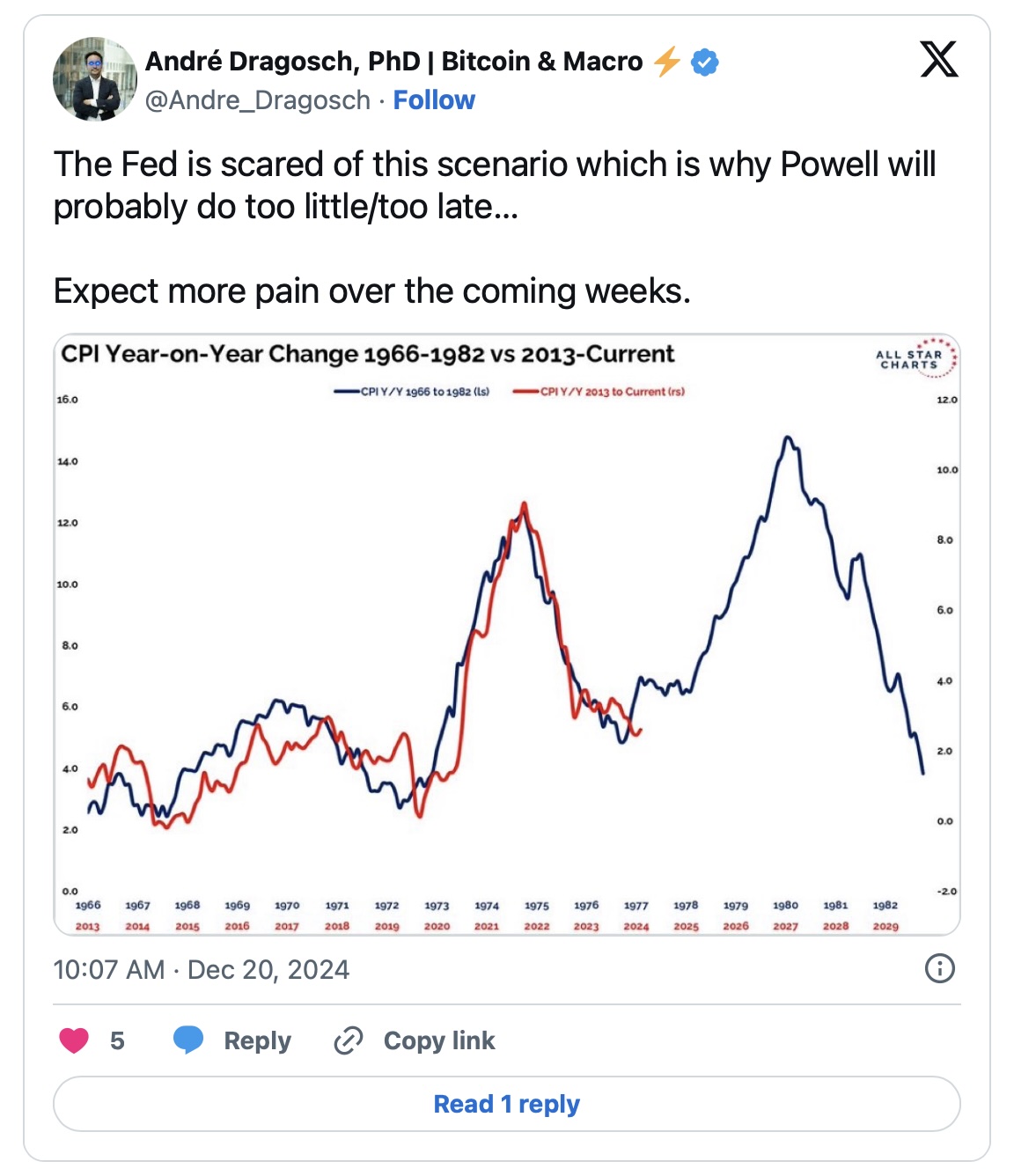Bitcoin (BTC)  $95,249 experienced a significant decline of 8.8%, dropping to $95,000 last week. This marks the steepest loss recorded since August. The Federal Reserve’s (Fed) restrained expectations for interest rate cuts and negative messages surrounding Bitcoin contributed to a downturn in the overall cryptocurrency market. Experts caution that further declines may occur due to macroeconomic conditions.
$95,249 experienced a significant decline of 8.8%, dropping to $95,000 last week. This marks the steepest loss recorded since August. The Federal Reserve’s (Fed) restrained expectations for interest rate cuts and negative messages surrounding Bitcoin contributed to a downturn in the overall cryptocurrency market. Experts caution that further declines may occur due to macroeconomic conditions.
How Fed Policies Impact Bitcoin
Andre Dragosch, Bitwise’s Director of European Research, assessed the recent drop in Bitcoin’s price. He stated, “The Fed’s pressures on the economy negatively affect both risky assets and the broader markets.” According to Truflation data, a resurgence in inflation rates in the US has prompted the Fed to adopt a cautious stance. The Fed’s reluctance to lower interest rates aggressively has created a negative atmosphere in the cryptocurrency market.
Dragosch noted that rising yields on 10-year Treasury bonds are driving investors to avoid risk. “Increasing bond yields and a strengthening dollar limit capital flows. There is a likelihood of further short-term declines for Bitcoin,” he added. However, he emphasized that Bitcoin’s limited supply provides strong support in the long term.
Inflation Fears from the 1970s Resurface
Experts suggest that the Fed’s primary concern is the recurrence of the dual inflationary wave seen in the 1970s. Dragosch remarked, “The Fed is hesitant to accelerate inflation through aggressive rate cuts. However, delaying action could also lead to an economic slowdown.”

Dragosch concluded that Bitcoin’s limited supply and the effects of financial tightening will support the cryptocurrency market. “The Fed may ultimately be forced to act under economic pressures, which could create significant buying opportunities for Bitcoin,” he suggested.
Disclaimer: The information contained in this article does not constitute investment advice. Investors should be aware that cryptocurrencies carry high volatility and therefore risk, and should conduct their own research.










